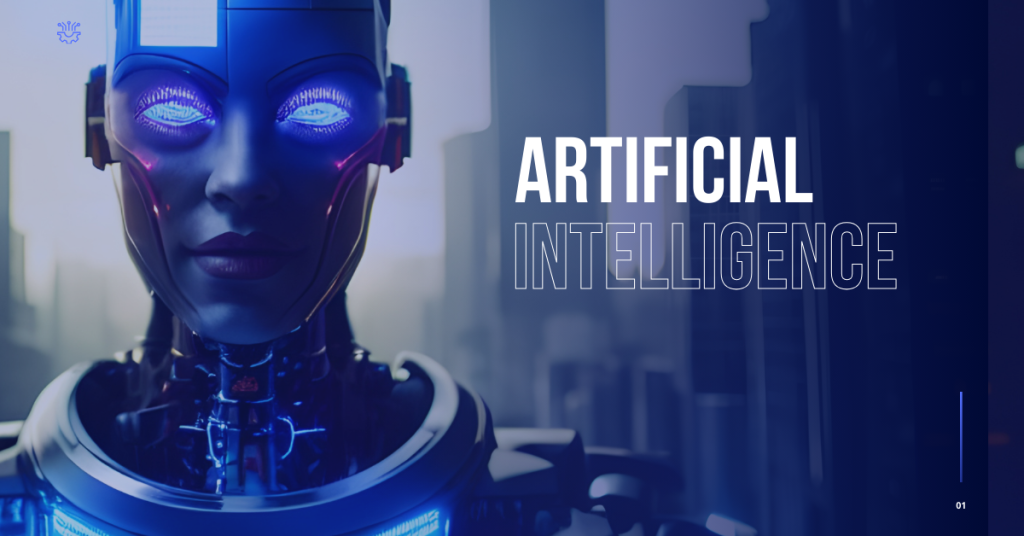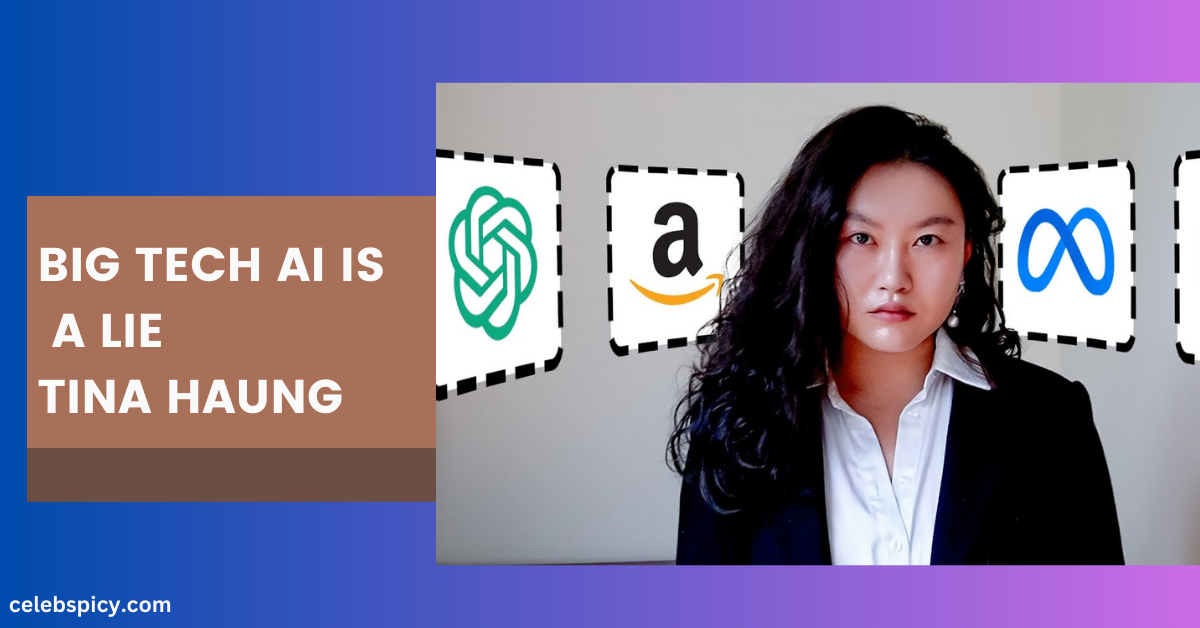Tina Haung claims that Big Tech AI is misleading. She believes it overpromises and underdelivers. Big Tech AI often gets marketed as a groundbreaking revolution. Tina Haung argues that this portrayal is deceptive. She suggests that the capabilities of AI are exaggerated by companies for profit. Consumers and businesses are misled into believing AI can solve all problems.
This hype creates unrealistic expectations and potential disillusionment. AI has made significant advancements but remains limited in many areas. Tina Haung urges a more realistic understanding of AI’s current capabilities. This perspective can help set more achievable goals and foster genuine innovation. Clear communication about AI’s true potential is essential for progress.
Introduction To Big Tech Ai
Big Tech companies boast about their AI capabilities. They claim AI will revolutionize everything. But is this really true? Tina Haung argues that Big Tech AI is a lie. Let’s explore this intriguing perspective.
Promises And Reality
Big Tech promises AI will change our lives. They say AI will do tasks better than humans. Here are some of their promises:
- Enhanced productivity with AI automation
- Accurate predictions in various fields
- Personalized experiences for users
The reality, according to Tina Haung, is different. She believes these promises are often exaggerated. Many AI systems don’t work as advertised. Let’s look at some examples:
| Promise | Reality |
|---|---|
| 100% accuracy in predictions | Often less than 80% accurate |
| Seamless user experience | Frequent bugs and errors |
| Complete task automation | Human oversight still needed |
Public Perception
The public sees AI as a magical solution. They think it can solve any problem. This perception is fueled by Big Tech marketing. Tina Haung believes this is misleading. She argues that people should be more skeptical. Here’s why:
- Over-reliance on AI can be dangerous
- Misleading claims hurt trust in technology
- Lack of transparency from Big Tech companies
Public perception often ignores the limitations. Tina Haung calls for more critical thinking. People should question Big Tech’s AI claims. This will lead to better understanding and realistic expectations.
Tina Haung’s Perspective
Tina Haung, a renowned voice in the tech industry, has a unique stance on Big Tech AI. Her views challenge the mainstream narrative, making her insights crucial for anyone interested in the future of artificial intelligence.
Background And Expertise
Tina Haung is a tech expert with years of experience. She holds a degree in computer science and has worked with top tech firms. Her deep knowledge of AI gives her opinions weight and credibility. Tina has contributed to multiple successful AI projects. She has also published several papers on the ethics of AI. Her commitment to ethical AI is evident in her work.
Critique Of Big Tech Ai
Tina believes that Big Tech AI is often misleading. She argues that companies exaggerate AI capabilities. According to her, AI is not as advanced as advertised. She points out that most AI systems lack true intelligence. They rely on large datasets but fail in real-world applications. Tina stresses the importance of transparency in AI development. Here are Tina’s main critiques of Big Tech AI:
- Overhyped Capabilities: Claims of AI intelligence are often overstated.
- Ethical Concerns: AI systems can be biased and unfair.
- Lack of Transparency: Companies are not open about AI limitations.
- Real-World Failures: AI struggles with complex, unpredictable environments.
Tina Haung calls for more honesty in AI discussions. She believes that only through transparency can we trust AI technologies. Her perspective is a wake-up call for the tech community.
Myths Surrounding Ai
Ai Capabilities
Many believe AI can solve any problem. This is not true. AI is good at specific tasks, not all tasks. It can analyze data and spot patterns. But it cannot think or feel. AI’s abilities are limited by the data it learns from. For example, AI can recognize faces in photos. But if the data is flawed, the results will be flawed too.| Myth | Reality |
|---|---|
| AI can do everything | AI can only do specific tasks |
| AI can think like a human | AI only follows programmed rules |
Autonomy And Intelligence
Many people think AI is fully autonomous. This is false. AI needs human guidance. AI can perform tasks, but humans set the goals.- AI cannot make moral decisions.
- AI does not have emotions.
- AI relies on human-designed algorithms.
- AI follows algorithms.
- AI lacks consciousness.
- AI cannot learn beyond its programming.

Commercial Interests
Big Tech companies often claim their AI innovations aim to benefit society. Tina Haung’s insights reveal another side. The hidden agenda is driven by commercial interests. These interests shape the technology and its deployment. The focus is on profit and market control.
Profit Motives
Big Tech firms prioritize profit motives over social good. Their AI tools are designed to maximize revenue. This often comes at the expense of users’ privacy and autonomy. Companies use AI to target ads more effectively. They collect massive amounts of data to refine algorithms. These actions increase their bottom line. Here are some ways they do it:
- Data mining for targeted advertising
- Subscription-based AI services
- Licensing AI technologies to other businesses
These practices reveal that profit is the primary goal. Ethical considerations take a backseat.
Market Dominance
Big Tech companies aim for market dominance. They use AI to outpace competitors. This ensures they remain leaders in the tech industry. Firms invest heavily in AI research and development. This creates a barrier for smaller companies. Here’s how they achieve this:
- Acquiring smaller AI startups
- Developing proprietary AI technologies
- Forming strategic partnerships
These strategies ensure they stay ahead. Competitors find it hard to keep up. The result is a few companies controlling the AI market. This limits diversity and innovation.
Ethical Concerns
Bias And Fairness
AI systems can have built-in biases. These biases stem from the data they use. If the data is biased, the AI will be biased too. For example, AI used in hiring might favor certain groups. This leads to unfair treatment. To ensure fairness, we need diverse data and transparent algorithms.| Issue | Solution |
|---|---|
| Biased Data | Use diverse datasets |
| Lack of Transparency | Develop open algorithms |
Privacy Issues
Big Tech AI often collects vast amounts of data. This can include personal and sensitive information. Privacy concerns arise when data is misused or shared without consent. To protect privacy, companies should follow strict guidelines. These include data encryption, user consent, and clear privacy policies.- Encrypt data to protect it.
- Get user consent before collecting data.
- Have clear and transparent privacy policies.
Case Studies
In this section, we will explore real-life case studies that challenge the effectiveness of Big Tech AI. These examples highlight the limitations and potential risks associated with relying on AI technologies in various sectors.
Ai In Social Media
Social media platforms heavily depend on AI for content moderation. But, there are numerous instances where these systems failed. For example, AI algorithms often struggle with context. They can’t always distinguish between hate speech and satire. False Positives: Many users have experienced unjust bans or content removal. This usually happens due to AI misinterpreting their posts. Privacy Concerns: AI-driven features like facial recognition have raised privacy issues. Users worry about their data being misused. Bias: AI systems sometimes display bias, affecting marginalized communities more severely. Studies show that AI can perpetuate existing stereotypes.
| Issue | Description |
|---|---|
| False Positives | Unjust bans due to AI misinterpretation. |
| Privacy Concerns | Facial recognition features raise data misuse worries. |
| Bias | AI systems may perpetuate stereotypes. |
Ai In Healthcare
Healthcare has seen a surge in AI applications. Despite promises, there are significant drawbacks. Misdiagnosis: AI-driven diagnostic tools aren’t foolproof. There have been instances where AI tools failed to identify diseases accurately. Lack of Human Touch: Relying on AI for patient interaction reduces the human element. Patients often feel less understood. Data Security: Healthcare data is highly sensitive. AI systems are not immune to breaches and data leaks.
- Misdiagnosis: AI tools can miss critical symptoms.
- Lack of Human Touch: Reduces empathy in patient care.
- Data Security: Risk of sensitive data breaches.
These case studies underscore the limitations of Big Tech AI. They highlight the need for human oversight and ethical considerations.
Alternative Views
In recent times, the narrative around Big Tech AI has faced scrutiny. Many believe it is overhyped. Tina Haung argues that Big Tech AI is a lie. This section delves into alternative views. We will explore insights from academics and independent researchers.
Academic Insights
Academics often provide a critical look at Big Tech AI. Many believe the technology is not as advanced as advertised.
- Studies show AI has limitations in real-world applications.
- Research indicates AI cannot fully replace human intuition.
Professors argue that AI lacks true understanding. This leads to misinterpretations of data. Some academic papers highlight AI’s bias. This bias can affect decision-making processes.
| Issue | Impact |
|---|---|
| Bias in AI | Skewed results |
| Lack of Intuition | Misinterpretation of data |
Independent Researchers
Independent researchers also question the narrative. They often provide unbiased viewpoints.
- Critical analysis of Big Tech claims
- Real-world testing of AI capabilities
They argue that AI is not a magic solution. AI’s effectiveness is often overstated. Researchers emphasize the need for transparency. This transparency can build trust in AI. Independent reviews often show AI’s flaws. These flaws can lead to significant errors.
Future Of Ai
Artificial Intelligence (AI) is transforming our world. Tina Huang argues that Big Tech AI is a lie. This raises questions about the future of AI. Let’s explore the potential directions and regulatory considerations.
Potential Directions
The future of AI holds many possibilities. Here are some potential directions:
- Healthcare: AI can help diagnose diseases early.
- Education: AI can personalize learning experiences.
- Transportation: Self-driving cars may become common.
- Environment: AI can monitor climate changes.
AI can also enhance many other fields. The possibilities are endless.
Regulatory Considerations
AI development needs regulations. Proper regulations ensure safety and fairness. Key areas for regulatory focus include:
- Privacy: AI must protect personal data.
- Bias: AI systems should be free from bias.
- Transparency: AI decisions need to be clear and understandable.
- Accountability: Developers should be accountable for AI systems.
Governments and organizations must work together. This ensures responsible AI development.
Frequently Asked Questions
Who Are The Big Tech Ai Giants?
The big tech AI giants are Google, Microsoft, Amazon, IBM, and Facebook. These companies lead in AI research and development.
Is Ai Intelligence Real?
Yes, AI intelligence is real. AI systems can perform tasks requiring human intelligence, such as learning, problem-solving, and decision-making.
Is Ai The New Big Thing?
Yes, AI is the new big thing. It drives innovation in technology, healthcare, finance, and more. Businesses leverage AI for efficiency and growth. AI enhances user experiences, providing personalized solutions. Its rapid development shows no signs of slowing down.
How To Survive Ai Jobs?
Stay updated with AI trends. Develop strong analytical skills. Learn programming languages like Python. Embrace continuous learning. Network with AI professionals.
Conclusion
Tina Haung’s insights reveal the complexities of Big Tech AI. Questioning mainstream narratives is crucial. Stay informed and critically evaluate technology advancements. Understanding AI’s true capabilities can empower us all. Don’t be swayed by misleading claims. Always seek the truth behind the tech industry’s promises.

